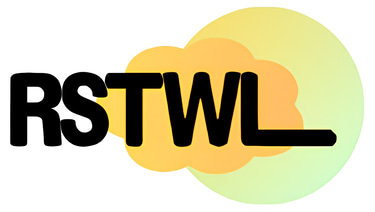Sleep Debt is Real: How to Recover from Exhaustion Without Burning Out
We often think we can “catch up” on sleep over the weekend after a week of late nights and early alarms. But the truth is, sleep doesn't work like a bank account—you can’t just repay it with a quick nap or a Sunday lie-in. Sleep debt—the difference between how much sleep you need and how much you actually get—adds up. Over time, it affects your mood, focus, immune system, and even emotional regulation. But there’s good news: recovery is possible, and it begins with awareness, routines, and comfort. At RSTWL, we believe rest is not a luxury—it's a biological need. And the right restwear is part of how we honor that need.
RSTWL
7/16/20252 min read


⏳ What Is Sleep Debt?
Sleep debt occurs when you regularly don’t meet your body’s sleep requirement (typically 7–9 hours for adults). According to the National Sleep Foundation, even mild sleep deprivation—losing 1–2 hours per night—can affect alertness, memory, and mood.
A landmark study from the University of Pennsylvania School of Medicine (Van Dongen et al., 2003) found that cognitive performance in people sleeping 6 hours per night for two weeks declined to the same level as those who had been awake for 48 hours straight.
😩 Signs You’re Accumulating Sleep Debt
Feeling tired even after 8+ hours of sleep
Needing caffeine to “function” every day
Irritability, anxiety, or mood swings
Brain fog or forgetfulness
Trouble concentrating or staying productive
🌿 How to Recover from Sleep Debt Without Burning Out
1. Prioritize Consistency Over “Catching Up”
The best way to recover isn’t to oversleep on weekends, but to stick to a consistent bedtime and wake time every day. This helps regulate your circadian rhythm.
📖 Reference: Harvard Medical School recommends no more than 1-hour sleep-in variation on weekends to maintain healthy sleep cycles.
2. Add 15–30 Minutes of Sleep Each Night Gradually
Instead of trying to recover all at once, add 15–30 minutes of sleep per night over a few weeks. According to the American Academy of Sleep Medicine, this incremental approach helps you regain alertness and focus safely.
💡 Tip: Make winding down easier by changing into soft, calming restwear that signals your body it’s time to slow down.
3. Power Nap with Intention
A short nap (10–20 minutes) in the early afternoon can boost cognitive performance and reduce sleep pressure. Avoid naps longer than 30 minutes, which can lead to grogginess.
📖 Study: NASA research on pilots and astronauts found a 26-minute nap improved performance by 34% and alertness by 54%.
4. Practice Micro-Resting Throughout the Day
If you can’t sleep, rest. Short periods of micro-rest (like lying down in silence, deep breathing, or gentle stretching) help your nervous system reset and lower cortisol levels.
🎧 Pair this with calming soundscapes or aromatherapy
5. Create a Rest-First Routine
Build a nightly ritual that prioritizes recovery—dim the lights, avoid screens, drink warm tea, journal, or do light reading. The key is consistency and cues that tell your body it's safe to rest.
💡 Switching into you most comfortable restwear at the same time every night can become a powerful signal that it’s time to unplug and let go.
🧠 Rest Is a Form of Healing, Not Laziness
In a culture that glorifies being busy, rest can feel indulgent. But sleep is the foundation of mental clarity, emotional resilience, and physical health. Without it, everything else suffers.
At RSTWL, we design restwear that’s not just soft and breathable—it’s a reminder that you are allowed to rest. That rest is productive, powerful, and necessary.
📚 Scientific References:
Van Dongen et al. (2003). The cumulative cost of additional wakefulness: Dose-response effects on neurobehavioral functions. Sleep.
Harvard Medical School (2021). Why catching up on sleep doesn’t work long-term.
American Academy of Sleep Medicine (2015). Sleep extension improves performance and mood.
NASA Ames Research Center. Naps and alertness in pilots.
National Sleep Foundation. Understanding sleep debt and recovery.
